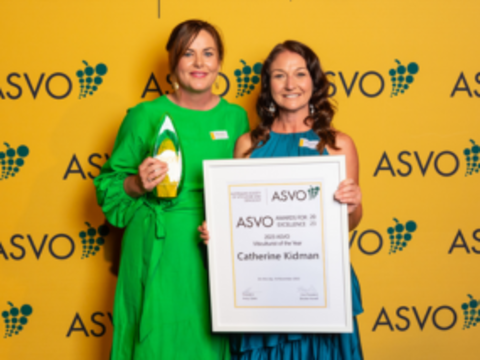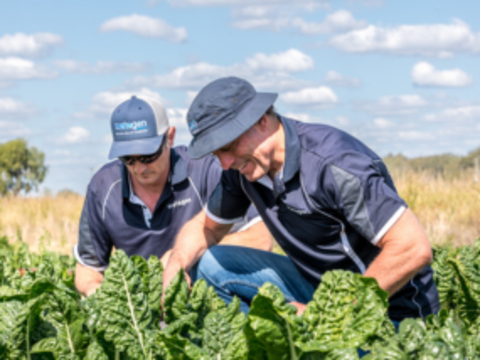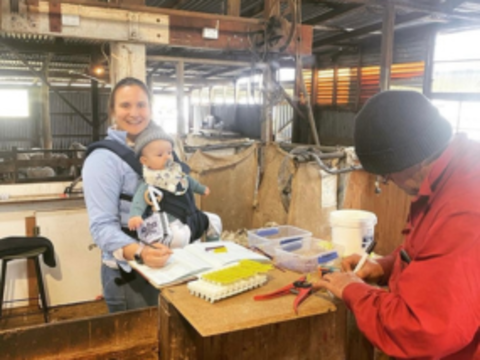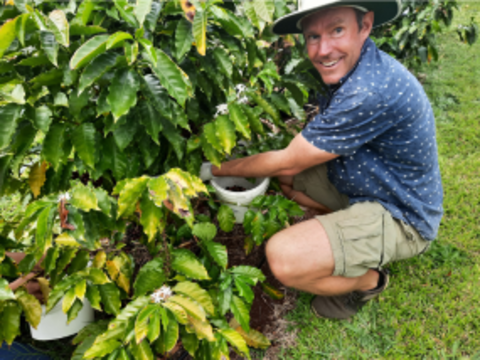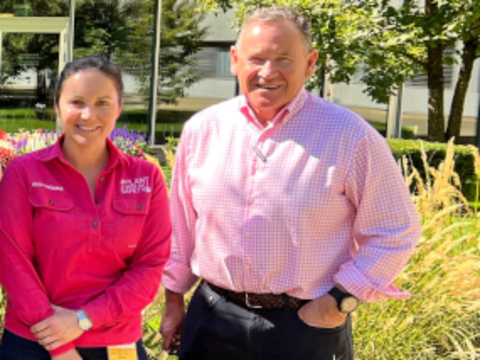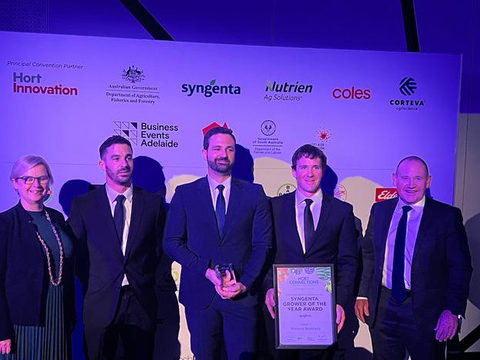Australian research tour to kick-start peach production in Pakistan
When agricultural researchers from a formerly Taliban occupied province in northern Pakistan visited Australia recently they found the two countries faced plenty of common challenges.
Dr Mohammad Rauf is the Director of the Agricultural Research Institute at Mingora in the Swat Valley north of Lahore in Pakistan. He, along with two of his fellow researchers, was hosted by the Australian Khyber Pakhtunkhwa Agricultural Development Organisation (AKPADO) through the support of Syngenta and the Crawford Fund.
For Dr Rauf this was a fantastic opportunity to build relationships and look at some of the agronomic solutions available in the Australian market.
“Australia definitely exceeded my expectations, in agriculture it is a very advanced country, the research undertaken here is excellent and there are many excellent scholars as well as farmers who are very corporate in their operations,” Dr Rauf said.
“We have a number of challenges in our region, particularly with brown rot and blossom blight in peach trees as well as the control of fruit flies. Much of what we have learned over the past week will be able to be applied relatively easily on our return to Pakistan.”
Richard Lillingstone, Syngenta Technical Lead for Fruit and Viticulture accompanied the researchers for part of the tour and says he was surprised by the level of access to crop protection technologies in Pakistan.
“Basically they have access to most of the same chemistry as we do and they have quite a robust registration system,” Richard said.
“Where they face challenges has a lot to do with getting research and technology messages out to farmers. The size of the farms varies dramatically and there are plenty of farmers operating on one acre blocks, this makes it difficult to share information and to provide technical support.”
Dr Rauf said there were a couple of key learnings that he would be keen to share with growers on his return.
“We attended a full day lecture with Dr Dick Drew who is the Centre Director for the International Centre for the Management of Pest Fruit Flies at Griffith University,” Dr Rauf said.
“From Dr Drew we learned a lot about fruit fly identification and treatment and will be adopting many of these techniques. Then with brown rot we have learned the critical stages of control, which will help us greatly in managing this disease in our fruit trees.”
Richard says that with the brown rot program they were really working on looking at the spray program as a whole rather than as reactive treatments.
“The plan is to focus their spray program around their two significant rainfall events. In the Valley they get around 180mm of rainfall in spring and another 150mm around harvest time,” Richard said.
“Historically growers have focused on controlling brown rot at harvest as that is when they see the disease however we spoke a lot about treating with a preventative spray program over the blossom at spring. The challenge then will be how the researchers educate the growers about applying the chemistry upfront to a disease they can’t see.”
Mark Drew, Executive Director of APKADO has been the main contact for the researchers and having been to the Swat Valley a number of times can see the benefit that this knowledge sharing will have on the region.
“We are aiming to develop agriculture and improve the income of farmers in the Swat Valley and to do this we need to ensure the region has up-to-date fruit growing technologies and techniques,” Mark said.
“The week that the researchers have spent in Australia has been enormously beneficial. From learning about the theory behind fruit fly treatment up at Griffith University in Brisbane through to talking to peach growers and agronomists down at Shepparton the knowledge that they have gained from their time spent here has been invaluable.”
“The three researchers are returning to Pakistan armed with some new techniques to share with growers in their region they have also made some great connections, which they will be able to continue to leverage in their efforts to kick-start the re-establishment of peach farming in the Swat Valley,” he said.
- Ends -
Syngenta is one of the world's leading companies with more than 28,000 employees in over 90 countries dedicated to our purpose: Bringing plant potential to life. Through world-class science, global reach and commitment to our customers we help to increase crop productivity, protect the environment and improve health and quality of life. For more information about us please go to www.syngenta.com.au



